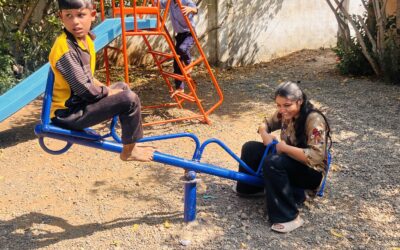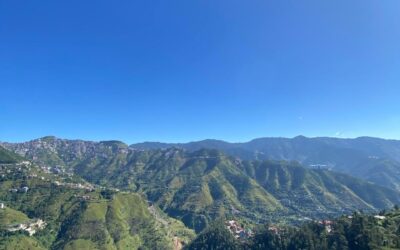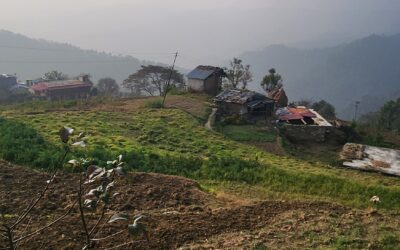Written by Anupama Pain – India Fellow alumni, in the fellowship program team and Tushar’s friend.
“Do the doctors or the nurses scold if you are crying or screaming due to labor pain in the hospital?”
I listened to the exchange with some amusement. Tushar, 25, to my right was talking to Malti, 23, to my left. I was working as part of a research team, which was conducting one to one interviews with young mothers to gauge the level of awareness and empowerment in women of rural Uttar Pradesh. Seven years of being exposed to projects which aim to understand empowerment levels, I have slowly and painfully learnt how a right question can not only lead to a meaningful conversation, but also a lot of insights. It took Tushar just a year to get there. I think I wanted to smile and feel jealous at the same time …
Born in Jaipur, Tushar grew up in rural Uttar Pradesh for the first ten years of his life. Later, he went to Birla Public School, Pilani. A curious mind, Tushar was interested in science and decided to study medicine. He got his MBBS in 2015 from Sawai Man Singh Medical College.
A bright mind can get you but only to a certain point. One does reach a crossroad somewhere along the course and the questions that arise then cannot be answered by a test or a degree. He reached there earlier than a lot of us do. Right in the middle of his college years.
It is one thing to be engulfed by all the learning in medicine, another to be aware of the health system of the country and the range of ethical dilemmas you will subject yourself to as a practitioner if you choose not to be indifferent.
What ensued was self-questioning, exploring and the decision to not nose-dive into practice or masters, but to understand deeply. And that was not going to come from a classroom or even a hospital. Happens that it came to Tushar through a grassroots fellowship program he chanced upon that took him to Innovators in Health (IIH). IIH is a non-profit working in rural Bihar to ensure care to TB patients for past seven years and, more recently, for mothers and newborns as well. Tushar is 20 month old now into this set-up and helped set up their maternal and neonatal health (MNH) program, including designing the intervention, training the team, and running the pilot. The program now reaches a population of 20,000 and it continues to increase every month. Tushar undertook research to increase efficiency within the TB program as well and collaborated to prepare a case study for it.

He could have spent his life working as a doctor in any city and lived a good lifestyle. But this is a different story. In a class of so many bright graduates, what occurred to one of them? Why did he deviate? Is the deviation going to do any good to him and us? What if we were to fuel a process of more such deviations? Will we look at a different healthcare system in this country then …
During my study and hospital visits, I understood that access to health services could be a space for discrimination among people and communities. This brought me face to face with the notion social justice. I saw health as a convenience of the rich and a privilege for the poor. This made me realize that medicine, the way it is practiced today, does not reach everyone in the same way.
Tushar spent the year of his fellowship in rural Bihar – listening, talking and living with the communities who otherwise would have only been patients for him. An experience like that can go in any direction. This is what Tushar has to say about his learning, “I have come out of this experience believing in the power of ordinary-looking people to change their life and have a much larger impact on their communities. People are intelligent and they know what their needs are. We need to step off the pedestal and begin by understanding and empathizing with them. We need more idealists in the field who are not satisfied by the condition our fellow humans live in. These will be people who will collectively spark a change. This last year could very well turn out to be a watershed moment in my life.”
We agree. We do need idealists. We need people who want to change things, who can move out of their offices and embrace their true purpose. Is it easy to do so? The long and short answer to it is no. But neither would sitting in a plush office and struggling with your conscience and ethics everyday will be. And while you will have to pick where you go, the bright part is that there are choices and opportunities now. Initiatives like India Fellow are growing and more young professionals are willing to expose themselves than ever before. It will be a decade by the time we might begin to see the change; or may be sooner. For Tushar though the change has already begun.
Malti replied, “Well I did not. But if you will scream, they are bound to scold/beat you isn’t it?” We made our notes and completed the interview. As I walked back I thought there is a considerable distance to cover for both empowerment and healthcare awareness in rural Uttar Pradesh. But Tushar walking by the side gave me more hope than despair …




0 Comments